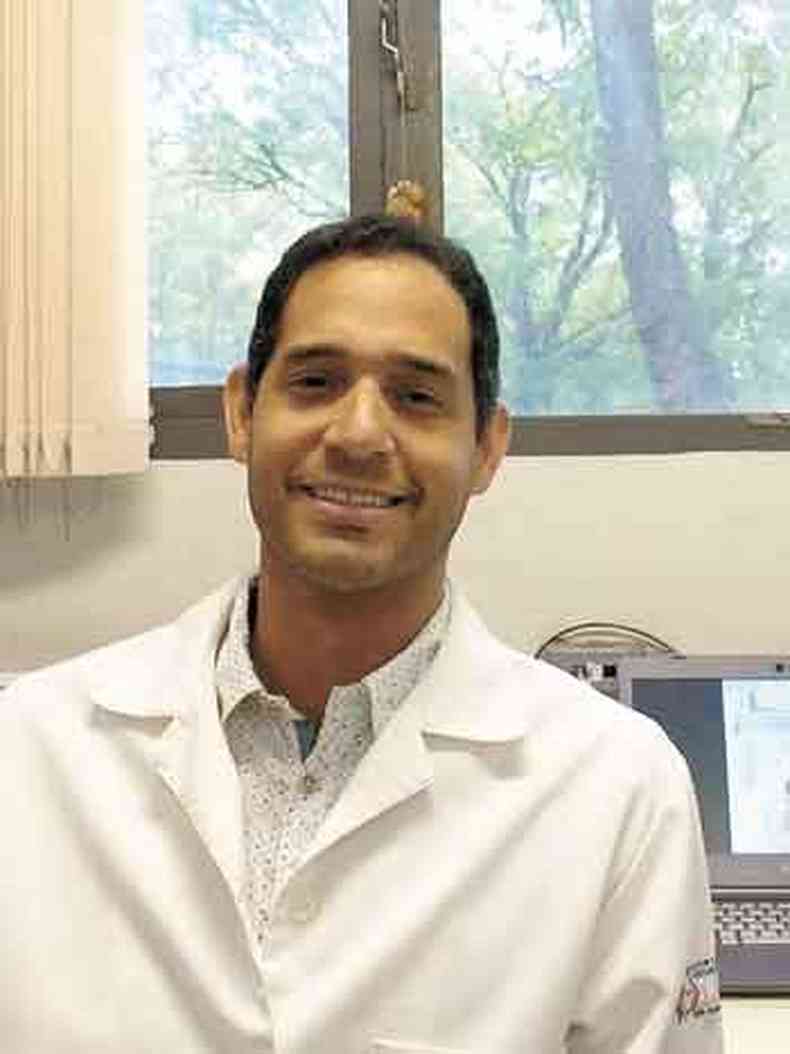
New hope against As an eagle. as soon as Medicine “Ambrisentan”, used for processing photos Hypertension Pulmonary, now seen by the medical community. This is because researchers from the University of Sao Paulo (USP) concluded, in a study, that the drug may reduce the ability of cancer cells to migrate and invade other tissues in tests conducted with strains of Tumors Pancreas, ovary, breast and leukemia.

“If this drug is confirmed, it will have a systemic effect, not only in inhibiting the tumor’s migration to other tissues, but also in preventing the formation of new vessels that cause it to grow.”
Ottvio Cabral Marquez, Researcher at the Institute of Biomedical Sciences of the University of São Paulo (ICB-USP) and study coordinator
The study, funded by Fapesp, has been published in Scientific Reports. This medication is an endothelial A receptor blocker, which works by constricting blood vessels. For this reason, it is used to treat pulmonary hypertension – usually caused by autoimmune diseases such as lupus and systemic sclerosis, ”explains Ottvio Cabral Marquez, researcher at the Institute of Syndrome of Biomedicus at São Paulo University (ICB-USP) and coordinator of the study.
According to him, despite some differences, the procedure is very similar with regard to cancer treatment. The cells he was acting in were different, but the receptor he was working in is also expressed in cancer cells. This receptor, which controls and controls the pressure of pulmonary matter in hypertensive patients, also regulates the movement of cancer cells. It works on some of the pathways, which we call signaling pathways, which are molecules, communication devices that work inside cells, and send information to the cell to move and spread. Then it controls, modifies, and reduces this activation, “he says.
As if this receptor puts the cell in a state of alert and movement to the normal state and the carcinogen. But it seems that the results presented by the study may go beyond.
“It appears that the effect of the drug is not only on the migration of cancer cells, but also on the formation of new blood vessels, that is, on the formation of new blood vessels necessary to nourish the tumor. We are conducting experiments to prove this. If confirmed, the drug will have a systemic effect, not only in inhibiting The tumor’s migration to other tissues, but it also prevents the formation of new vessels that make it grow, “notes the study coordinator.
Scratches? Initially, the drug did not show any adverse reaction, which is an important factor in cancer treatment, because current treatments usually express invasive methods with strong and harmful side effects to the body. The case of chemotherapy, for example.
“This drug does not have the same harmful effect that it might have for others. The idea, then, is to relate cancer treatment to this drug so that it can reduce the need for excessive chemotherapy. This reduction can be very beneficial to patients, whether from the point of view of the treatment itself or Regarding the quality of life of a cancer patient, “says Ottview Mendes.
Additionally, the researcher notes that since the drug has been used to treat pulmonary hypertension, the drug has already been tested and found to be harmless. Another positive and hopeful point for cancer patients.
So, I started and analyzed several tumor cell lines and did experiments. Not premeditated, it was accidental. From time to time this happens, an interesting phenomenon, “says Ottview Mendes.
The research used a technique to measure cell migration and then to test the drug. Early-stage mice with an aggressive strain of breast cancer were then treated for two weeks before the tumor was implanted and two weeks later. In this experiment, the reduction in metastasis was 43%, which resulted in increased survival of the animals.
“Because 4T1 cell metastasis occurs so rapidly in mice, we have started treatment in advance, so we can get closer to what will happen to humans,” explains the researcher.
Although the drug has the advantage of taking it orally, the researcher believes that it is possible to perform a direct application on the tumor, in order to increase the effect. The type of cancer clinical tests that will be performed has yet to be determined.
In light of clinical trials of the drug for the treatment of cancer, it has not yet been indicated for the use of the drug in malignant tumors.
“These studies assessed the frequency and types of delays and interruptions in the prevention or treatment of cancer patients worldwide.”
Rachel Reira, a rheumatologist who led the research on the impact of COVID-19 on cancer treatment

The study indicates an effect Pandemic in oncology
In oncology, the data illustrate the situation very well, as indicated by a Brazilian study by the Center for Health Technologies, Education and Research Assessment in Sri Lanka, at the Sri Liban Hospital.
According to the research – carried out through mapping and analysis of scientific evidence from nearly 3,000 publications – led by rheumatologist Rachel Riera and co-authored by oncologists from the Infectious Diseases Department of the World Health Organization (WHO), more than 50% of cancer patients have delayed treatment due to an epidemic. COVID-19.
In addition, 77.5% of patients discontinued treatment during the pandemic, including palliative care. In the same scenario, doctors report stopping treatments at 48%.
There was also a delay in stem cell transplants, according to a report from 73% of oncologists. However, according to the indicators surveyed, 88.5% of oncology centers reported epidemiological delays in conducting laboratory examinations for cancer diagnosis, and 83.6% indicated delayed imaging tests. The result: a 77% decrease in cancer diagnostics since the start of the COVID-19 pandemic.
Other data on consultations indicate that 95% of patients, physicians, and specialized medical centers reported canceling follow-up consultations, while 42.5% of physicians and patients indicated that often there was no contact even, but only attendance at already scheduled appointments.
The study indicates that the main reasons for delaying or stopping cancer treatment by patients relate to fear of infection with the disease caused by the new Coronavirus – COVID-19. For the doctors, the justifications were: risk of catching COVID-19, lack of medication, lack of teams and lack of support services.
These studies assessed the frequency and types of delays and interruptions in the prevention or treatment of cancer patients worldwide. Scientific production increases during a pandemic and is growing, which has allowed a very wide range of studies to be included in a systematic review. However, this also requires that the review be updated frequently, ”notes Rachel Riira.
For oncologist Felipe Reutberg, of Sri Lippans Hospital and a WHO consultant, who is also the author of the Systematic Review, the work constitutes the best possible level of evidence for public health decision-making.
“The main goal now is to understand where the elements responsible for delays and disruptions in the health system, identified by the published study, live, measure them using predictive models, and point to solutions that reduce subsequent delays in the care of patients suffering from chronic diseases, including cancer. The way, countries will be able to measure lives saved by resuming patient care and saving lives. “
This systematic review includes an analysis of assessed studies reporting data from patients with breast, head and neck, urinary, colon and rectal cancers, skin and hematology, gynecology, children, and lung cancer. Studies shedding light on different types of cancer have also been analyzed. The research is published in the latest issue of JCO Global Oncology of the North American Society of Clinical Oncology (Asco). (Gm)
* Training under the supervision of Teresa Karam

“Wannabe internet buff. Future teen idol. Hardcore zombie guru. Gamer. Avid creator. Entrepreneur. Bacon ninja.”

